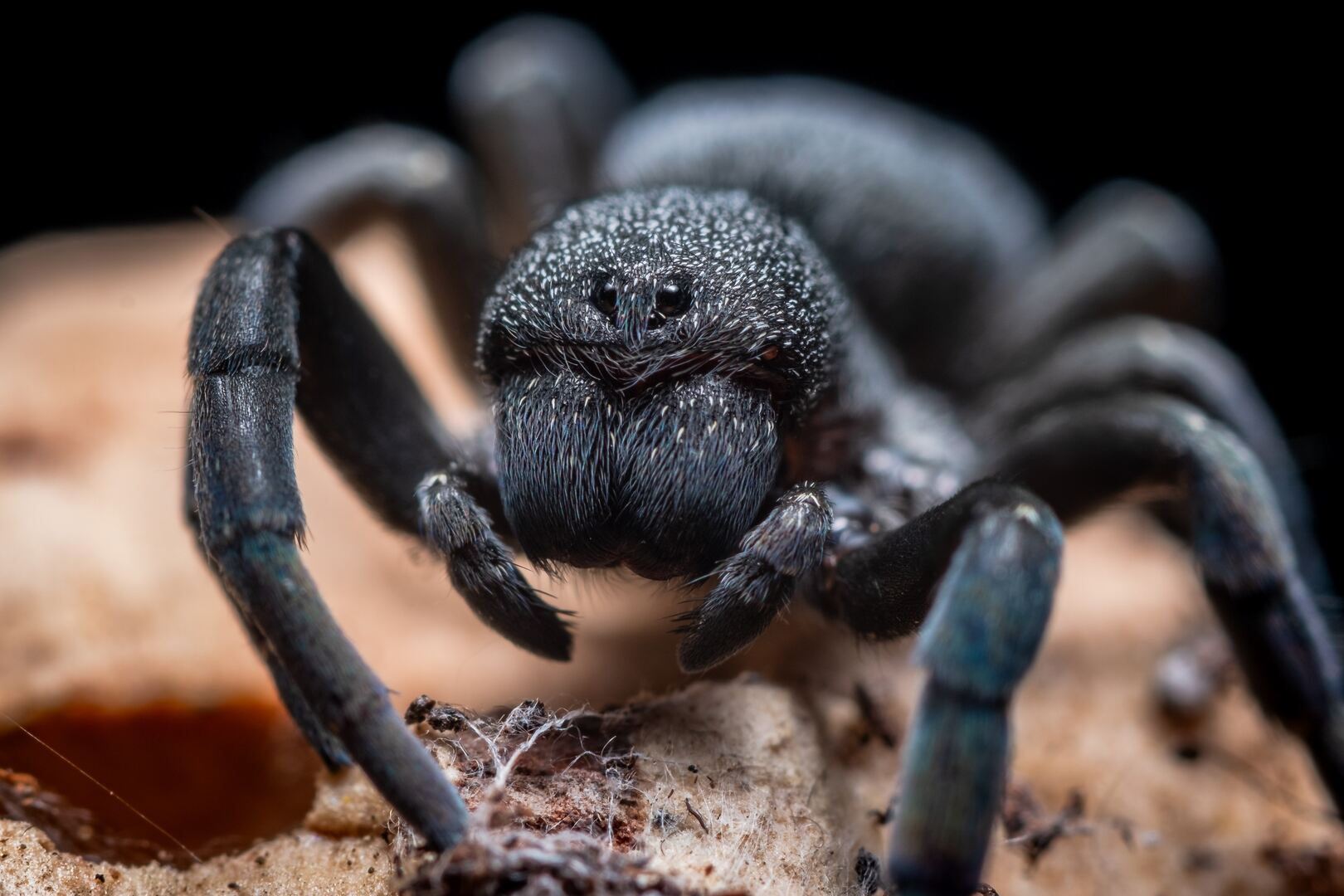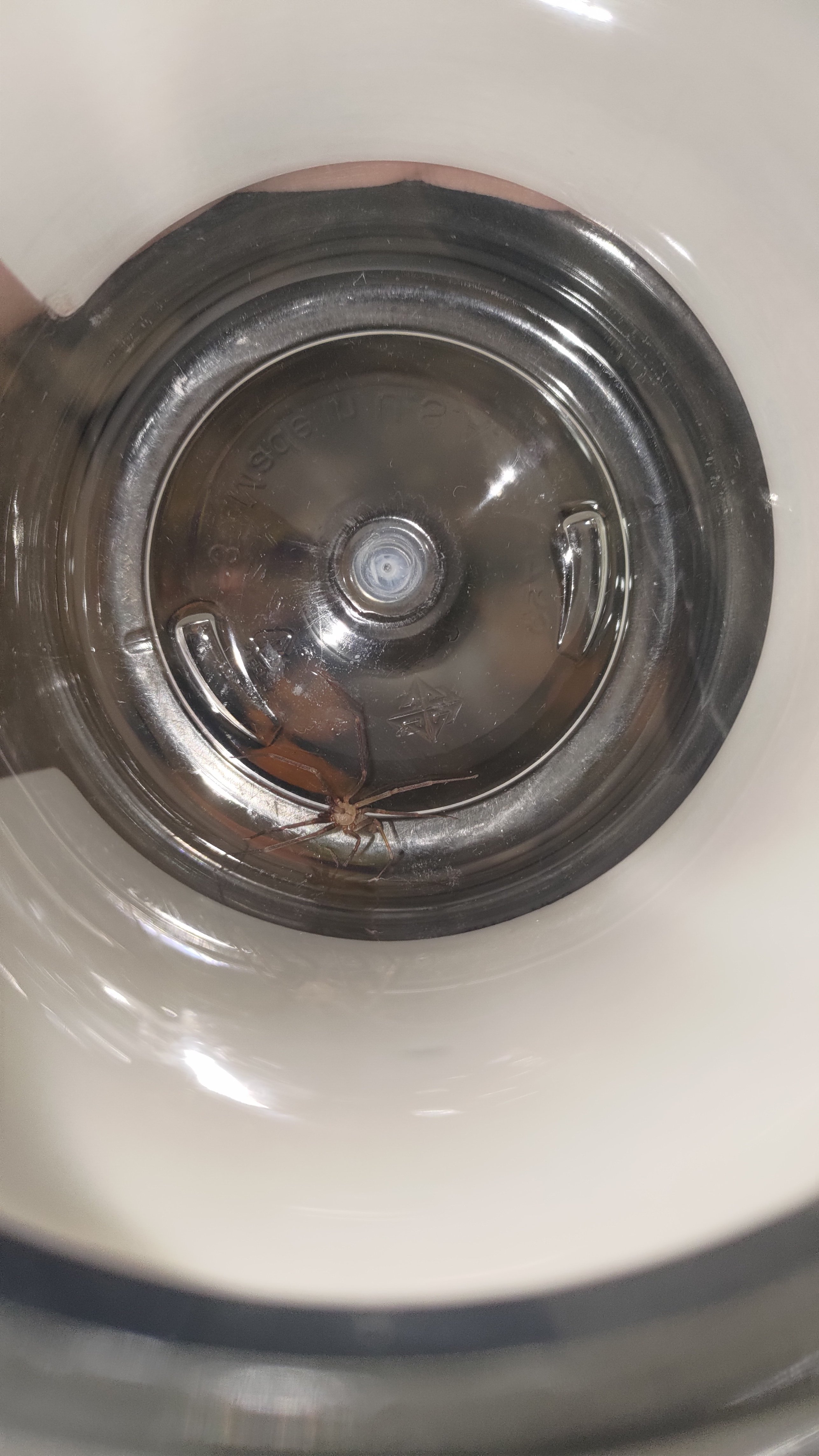view the rest of the comments
Spiders

Discover, Discuss, and Delve into the World of Spiders!
Rules:
-
Geographic Location is Mandatory: When requesting an identification of any living organism, it is crucial to provide the geographic location where the organism was found. This information is essential for accurate identifications.
-
No Speculation on Medical Significance: Under no circumstances should members speculate about the medical significance of spiders or any other organisms during identification discussions. Medical-related advice should be sought from appropriate healthcare professionals.
-
Avoid Misidentification and Misinformation: We strongly discourage spreading misinformation and misidentifications. If you are unsure about an identification, it is better not to guess. Instead, ask for help from knowledgeable members or professionals.
-
Respectful and Professional Communication: Treat all members with respect and professionalism. Engage in constructive discussions and avoid offensive language or behavior.
-
Follow the Sidebar Guidelines: Make sure to review and follow the guidelines provided in the forum sidebar. This includes rules, helpful resources, and any specific instructions for posting.
-
Cite Sources and Provide Evidence: When sharing information or making claims, try to back them up with credible sources or evidence whenever possible.
-
Avoid Self-Promotion and Spam: This forum is not a platform for self-promotion or spam. Stay on-topic and contribute meaningfully to discussions.
-
Keep it Relevant: Make sure your posts and comments are relevant to the community's focus and goals.
-
Report Violations: If you come across any posts or comments that violate the rules or guidelines, please report them for appropriate action.
Remember that our goal is to create a serious and professional community focused on accurate identifications and meaningful discussions. By adhering to these rules, we can maintain a respectful and knowledgeable environment for everyone. Welcome to our community!

It might help to know your region on where you live to help get a better id.
More info and a photo to help you determine for yourself. The eye pattern is often the real tell if it's a recluse or not: https://mdc.mo.gov/discover-nature/field-guide/brown-recluse-violin-spider
Just looked it up. Southern US. Probably a recluse based on my bad internet research. No more hand handling. I yote one out the window into the bushes by hand last week. Whoops.
Bruh that's like the ONE spider you don't touch growing up in the South haha. Their bites are insanely painful.
Don’t forget the necrosis.
Yup they're just straight up carve a hole in your body.
I'm from Canada hahaha. I don't know the first thing about the southern US except if it rattles run.
Also if it swims run (snake).
Ooh noted. What are those?
Water Moccasins and Coral Snakes are both assholes that have a mean venom and swim.
Haha like the other dude said, Water Moccasins (AKA Cottonmouth) and Coral Snakes are two common amphibious snakes you don't want to fuck with. Can be life threatening if you're in remote areas and go without treatment.
Also like the other dude said, definitely do a little research about the dangerous animals in your region if you're new to the South. The nature there is absolutely beautiful but some of it can be quite dangerous to humans/pets. We get taught all this in school as kids so never really occurred to me that, yeah, adults new to the area should def learn it too.
In general if you're not sure, just leave it alone and be aware of your surroundings. Never try to handle or scare a predator unless you absolutely have to. If it suddenly becomes quiet in the woods, heed the warning and slowly move away, as I'm sure you know as a Canadian about large predators. Also figure out how to identify poison oak, it's a motherfucker to get rid of haha.
Hey, thank you so much for the advice. I've got some serious research to do.
I don't know where in the southern U.S. you are, but definitely look up the dangerous animals for wherever you are living or visiting. In Florida, there are only 2 common dangerous-to-humans spiders, I believe: widows and recluses. There are a few snakes. Alligators are obviously dangerous, but you're likely to know when you're in an environment where alligators are likely to be. There are, of course, a number of potential dangerous marine animals. Stay safe, my friends!
Yeah pretty much this except black widows are pretty uncommon indoors and theyre really skiddish. Mostly only hang out under logs/rocks, so you're unlikely to run into one. Recluses love indoors and are violent fuckers. OP is super lucky he didn't get bit honestly.
They are somewhat uncommon indoors, yes, but you do still see them in enclosed places like sheds and garages. I've also seen one hanging out at a gas pump. Of course, there are also lots of widow mimics out there that are pretty harmless to people.